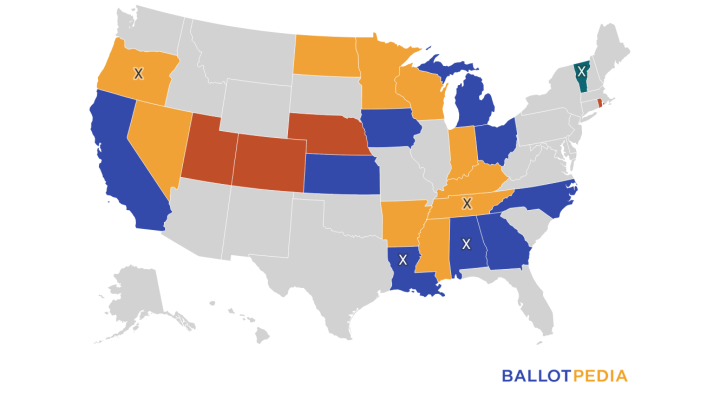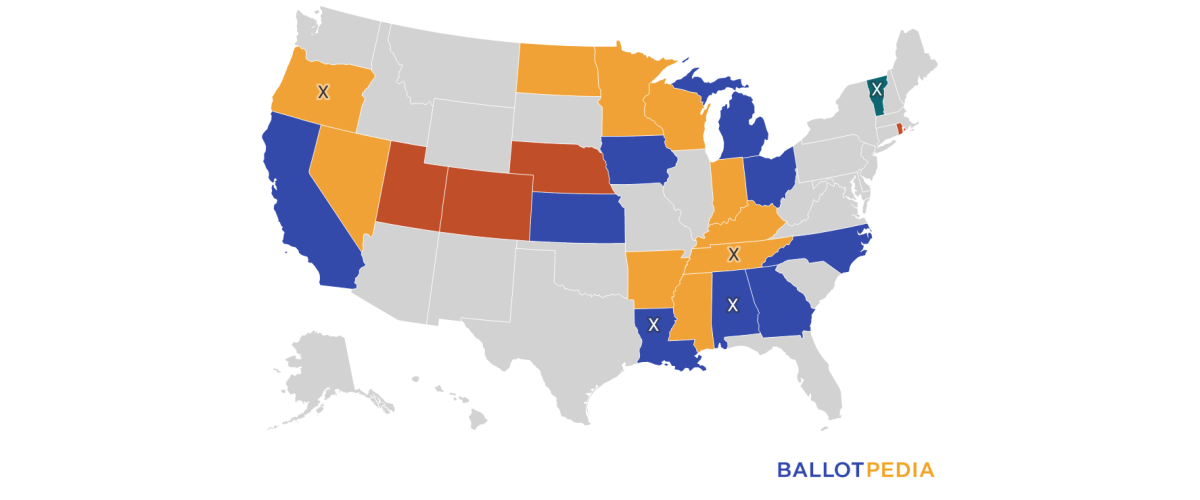While the prospect of becoming enslaved may seem like an irrelevant question today — slavery was abolished in the United States 157 years ago with the ratification of the 13th Amendment — last week citizens in five states voted on constitutional amendments and measures discussing the prohibition of enslavement and involuntary servitude.
Nov. 8 Ballot initiatives in Alabama, Louisiana, Oregon, Tennessee and Vermont were intended to improve upon the antiquated language of the 13th Amendment, which allows for slavery and involuntary servitude “as a punishment for a crime” for persons who were convicted in the United States or other places “subject to their jurisdiction.” This means incarcerated persons are not protected from forced labor under the U.S. Constitution.
When the amendment was ratified, this language created a legal loophole called the “exception clause,” and throughout American history it has been utilized in ways that discriminate against African Americans.
The loophole led to the creation of Black Codes in the South, a series of laws that preceded the Jim Crow era and were intended to limit the rights of Black people (many of whom were formerly enslaved). These codes also enforced segregation. They limited job hiring and transition processes, the ability to own certain types of property and many other things. Notably, these codes limited a Black person’s ability to leave a job once hired by a white employer.
58 years after the Civil Rights Act was passed, enslavement is still legal in some parts of the U.S. under the loophole of the exception clause.
These discriminatory Black Codes and Jim Crow laws were not outlawed in the U.S. until Congress passed the Civil Rights Act in 1964, 99 years after the ratification of the 13th Amendment. And today, 58 years after the Civil Rights Act was passed, enslavement is still legal in some parts of the U.S. under the loophole of the exception clause.
In an effort to make historical improvements, voters from four of the five aforementioned states approved ballot initiatives that proposed improvements. These are the results:
In Alabama, voters approved a Recompiled Constitution Ratification Question, in which the entire Constitution of Alabama was updated and recompiled, including the removal of all perceived racist language. Within the recompiled constitution, Section 32 of Article I states that the exception clause found in the 13th Amendment is removed by the adoption of this ballot measure.
In Oregon, Measure 112 repealed the language from the Constitution allowing slavery and involuntary servitude as criminal punishment. This measure also added language authorizing the court, or a probation or parole agency, “to order alternatives to incarceration for a convicted individual as part of their sentencing.” The measure allows for persons convicted of a crime to be required to engage in “education, counseling, treatment, community service or other alternatives to incarceration” that are rehabilitative, to hold a person accountable and work toward the protection of society.
In Tennessee, voters approved Constitutional Amendment 3, which replaces all language allowing slavery and involuntary servitude as criminal punishment with the statement, “slavery and involuntary servitude are forever prohibited.”
In Vermont, Proposal 2 repealed language from the Constitution stating that “persons could be held as servants, slaves or apprentices with the person’s consent for the payments of debts, damages, fines or costs” and now clarifies that “slavery and indentured servitude in any form are prohibited.”
Of the five states that voted on these ballot initiatives, Louisiana is the only state that did not successfully approve a new amendment or measure.
For voters in Louisiana, Amendment 7 was on the ballot. If ratified, it would have removed language from the state Constitution that currently allows involuntary servitude as punishment for crimes. It also would have added language prohibiting slavery and involuntary servitude “except when used as part of the lawful administration of criminal justice.”
This is not the end of efforts by Louisiana politicians to make amendments to their constitution regarding slavery, though. State Rep. Edmond Jordan (D), the legislative sponsor of the amendment, encouraged voters to reject the measure on their ballots due to its ambiguous language. He said that it was confusing and ambiguous and that the amendment needs to be revised and brought back to the ballot next year with clearer language.
Related articles:
How the church in Maryland became the primary auction block for slaves | Analysis by Lisa Sharon Harper
What to do if you unearth a history of slavery in your church, college or institution?
How slavery still shapes the world of white evangelical Christians | Opinion by Richard T. Hughes
What Toni Morrison taught me about my people, the Quakers | Opinion by Becky Ankeny


